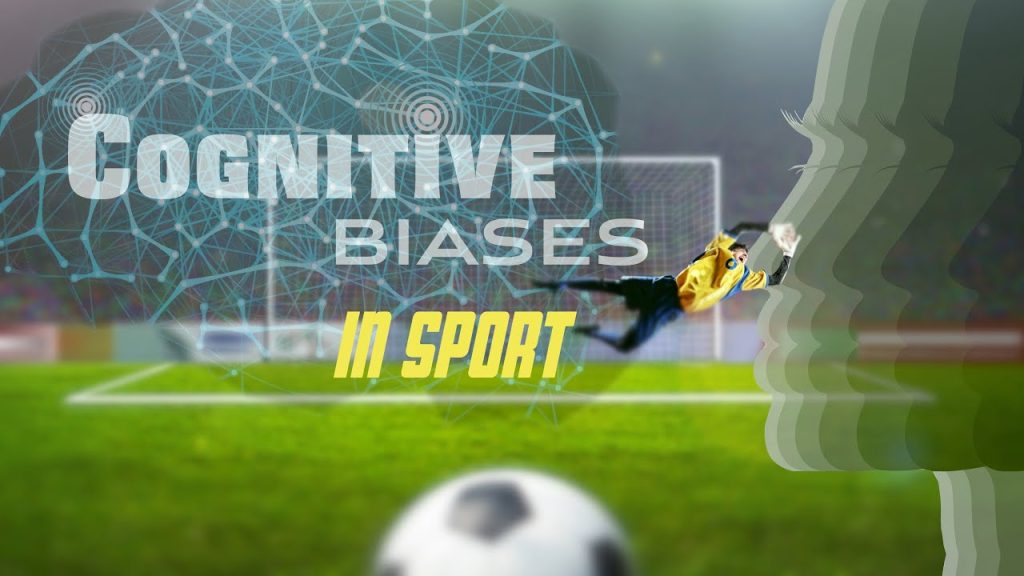Sports betting is a popular pastime in many regions of Africa, providing both amusement and a chance to gain money. However, it is critical to grasp the psychological biases that can influence sports betting decision-making.
This insight can help bettors avoid frequent mistakes and make more educated decisions. In this article, we will look at several common psychological biases in sports betting and provide techniques to limit their influence, with an emphasis on the African setting.
Understanding psychological biases
Psychological biases are systematic patterns of deviating from the norm or rationality in judgement. These biases frequently result from the brain’s desire to simplify information processing. In the context of sports betting, these biases can result in poor decisions and financial losses. Below are some prevalent biases:
- Overconfidence Bias
- Gambler’s fallacy
- Recency, confirmation and anchoring biases
Let’s look at each of these biases and see how they show in sports betting.

Overconfidence Bias
Overconfidence bias occurs when gamblers exaggerate their knowledge, abilities, or ability to forecast results. This is especially common in sports betting when fans believe their knowledge of the sport provides them with an advantage.
In African countries like Nigeria and Kenya, football supporters may have a strong connection to their favourite teams. This might lead to overconfidence in betting, particularly in local competitions such as the Nigerian Professional Football League and the Kenyan Premier League.
How To Avoid It
- Conduct thorough research. Even if you believe you know a lot about a team, conduct rigorous study. Consider recent performance, injuries, and head-to-head records.
- Seek Different Opinions: Engage with different sources of information to gain a well-rounded perspective, and do not rely exclusively on your judgement.
Gambler’s fallacy
The gambler’s fallacy holds that previous experiences can impact future outcomes in independent events. In sports betting, this might manifest as feeling that a team is “due” for a win following a string of defeats.
In an African context, a fan of the South African Premier Soccer League may expect their favourite team, the Orlando Pirates, to win the next game after a string of losses.
How to Avoid It
- Understand Probability: Each game is an individual occurrence. Past performance does not guarantee future results.
- Rely on facts: Make betting judgements based on current facts and analysis rather than patterns in previous results.
Recency Bias
Recency bias is the propensity to place more emphasis on recent occurrences when making decisions. In sports betting, this indicates that bettors may overestimate a team’s current performance while ignoring long-term patterns.
In an African context, bettors may forgive a team’s poor performance if they have won their last three matches comfortably, such as Al Ahly in the Egyptian Premier League.
How to Avoid It
- Long-Term Analysis: Instead of focusing just on recent matches, consider long-term performance data and patterns.
- Balanced Perspective: To make balanced betting judgements, take into account both recent form and historical data.
Confirmation Bias
Confirmation bias is the tendency to seek out, evaluate, and recall information that supports one’s views. In sports betting, this means that bettors may only pay attention to facts that confirm their desired outcome.
In an African context, a fan may assume that Ghana’s Asante Kotoko is unstoppable at home. They may therefore exclusively seek information that supports their belief, rejecting evidence to the contrary.
How to Avoid It
- Be objective: Make a concerted effort to seek out facts that question your beliefs.
- Critical Thinking: Analyse all available information critically and prevent selective exposure to material.
Anchoring Bias
Anchoring bias occurs when bettors make decisions based too strongly on one piece of information (the “anchor”). In sports betting, this could be the starting odds offered by bookmakers.
In an African context, gamblers may persist with their initial appraisal of a Moroccan team, such as Raja Casablanca, even if new information contradicts it.
How to Avoid It
Regular updates: Keep your knowledge up to date and change your bets as needed.
Independent Analysis: Do your own research rather than relying entirely on the bookmaker’s odds.

Strategies for Mitigating Psychological Biases
Education and Awareness
The first step towards overcoming psychological biases is to become aware of them. Understanding that biases exist and can influence your decision-making is critical.
- Educational Resources: To understand about psychological biases, consult books, articles, and online courses.
- Betting Forums: Join betting forums and debates to obtain new perspectives and insights.
Betting Strategies
Implementing structured betting techniques can help to reduce the influence of bias.
- Fixed Betting Amounts: Use a set sum for each bet to avoid overconfidence and rash decisions.
- Diversified Bets: Spread your bets over multiple games and leagues to mitigate the effects of recency and confirmation biases.
Analytical tools
Use analytical tools and data to make informed betting judgements.
- Statistics and Analytics: Use statistical tools and websites to do in-depth analyses of teams and players.
- Consider employing betting software that includes data analysis and predictive modelling.
Mindset and Discipline
Maintaining the proper mindset and discipline is critical in sports betting.
- Stay Calm: Avoid making emotional bets based on previous bet results.
- Set Limits: To stay in control, limit the amount of money and time you spend betting.
Community and Support
Join a community of bettors to share experiences and techniques.
- Betting clubs: Join local or online betting clubs to share thoughts and support one another.
- Experienced advice: To strengthen your betting strategy, consult with experienced bettors or financial consultants.

Discover smarter sports betting with BangBet.com, Africa’s leading betting platform. At BangBet, we understand the psychological biases that can affect your betting decisions. That’s why we offer cutting-edge tools and comprehensive data to help you make informed choices. Whether it’s avoiding the gambler’s fallacy or mitigating recency bias, our platform is designed to support responsible and strategic betting. Join BangBet.com today, where expertise meets opportunity, and elevate your betting game with confidence and clarity. Bet better, win more with BangBet!
Sports betting can be an exciting and possibly rewarding hobby, but it’s important to understand the psychological biases that might influence decision-making. Understanding these biases and using techniques to limit their effects allows African bettors to make better informed and reasonable judgements. Remember that study, critical thinking, and disciplined techniques are essential for success in betting. By remaining aware of psychological traps and constantly refining your strategy, you may improve your sports betting experience and boost your chances of success.



